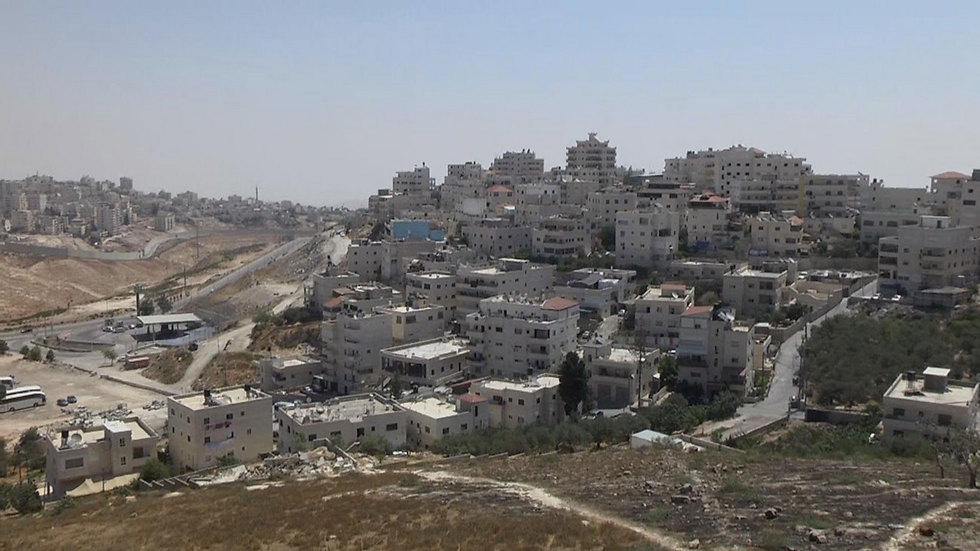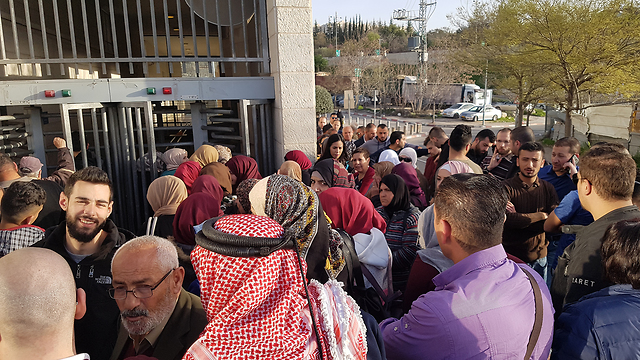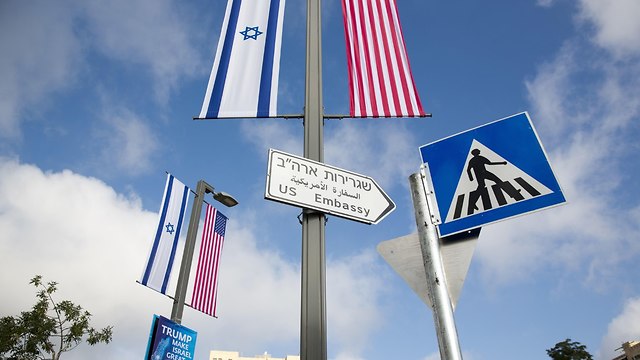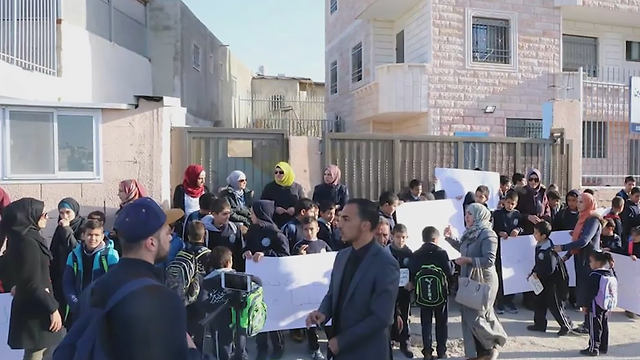

Comptroller: Government plans to bolster Jerusalem fall short
Grandiose plans to strengthen Jerusalem economy, tourism, academia not implemented properly, allocated budgets do not reach destinations due to disagreements between government ministries, municipality, State Comptroller says; Millions allocated for infrastructure development in east Jerusalem, but plans insufficient.
The capital of Israel and its largest city, with nearly 900,000 residents, suffers from economic and social weakness, and in the Arab neighborhoods of east Jerusalem it is even worse,the State Comptroller, retired judge Yosef Shapira, wrote in a special report published on Sunday, adding that plans to reduce gaps and develop the city were flawed in the planning process, as well as in their effectiveness and impact on the target population.
Since 2005, the government approved multi-year plans for the development of Jerusalem and allocated more than NIS 3 billion for its implementation. Among the five-year development plans were the Marom and Yovel plans, which have been formulated and managed over the years since 2005 by various government ministries.
The Marom Plan primarily focuses on growth in three areas: tourism, biotechnology and complementary economic development, including measures related to the academic field.
The aim of the Yovel (jubilee) Plan was to generate economic momentum and economic force in the city. In addition, in a plan to reduce the socio-economic gaps, the government set forth a goal to prevent violence and crime alongside promoting economic growth.
The criticism of the State Comptroller's report raised issue with three aspects of the plans.
One: At the end of the predetermined time period for the Marom Plan, it is still impossible to determine its effectiveness, since only some of its goals have been achieved and others have no pre-defined success parameters, especially in academia and education. The comptroller added that the program's compliance with its objectives is prominent with regards to advanced industry.
Two: Deficiencies in planning the follow up plan that follows the Marom Plan—the Yovel Plan. The government approved the plan and allocated NIS 860 million to it based on the partial implementation of previous plans and on the basis of incomplete information regarding their achievements.
In addition, it was found that in December 2016 the steering committee of the Yovel Plan approved the multi-year plan. However, it was found that the quality of life segment, part of the core of the Yovel Plan programs, whose budget constitutes about a quarter (23%) of the government approved budget, was not included in the multi-year plan approved by the steering committee.
Deficiencies were also found in the plan to market tourism for Jerusalem. The Ministry of Tourism is responsible for determining the marketing policy of the tourism industry in Israel. The government approved the plan, which approved plans for tourism, including plans to boost the marketing of Jerusalem, which was allocated NIS 23 million. The government also decided that plans to boost the marketing of the city would be formulated by a team composed of the director-general of the Jerusalem Ministry, the director-general of the Ministry of Tourism and the director general of the city development authority.
However, that is not what actually happened. This mechanism for ensuring cooperation between the ministries was not implemented in practice. The comptroller found that the Jerusalem Ministry of Tourism and the Ministry of Tourism acted separately to market the city, and according to statements made by the Director General of the Ministry of Tourism, as a result, the marketing efforts of Israel in general and Jerusalem in particular were harmed.
Regarding the plan to reduce socio-economic gaps, the comptroller wrote that 76% of the residents in the Arab neighborhoods of East Jerusalem are below the poverty line, 85% of them children. The average monthly income per capita in the Arab neighborhoods is very low - 40% of that of a resident in the western part of the city. The physical and social infrastructures in all the neighborhoods are very poor and there is a significant shortage of classrooms and public buildings.
For example, in June 2014, NIS 67.5 million was allocated to infrastructure development in East Jerusalem. Until the end of the audit, no survey of the infrastructures in East Jerusalem was submitted to the steering committee. In addition, in November 2016, a plan was submitted for the approval of the steering committee to upgrade infrastructure in East Jerusalem, two years beyond the date set by the government. The comptroller noted that this plan was partial because it did not include projects to exploit the budget that the municipality was required to allocate to the plan.
Government offices struggling with move to capital
The State Comptroller's report also found that most government departments (57 out of 65) required a long time to move to the capital despite all the government's decisions on the matter. While the US Embassy will officially move to Jerusalem on Monday, only 1,300 out of 56,000 government employees (2%) work in Jerusalem. In addition, 140 national units of 25 government ministries, with some 2,700 employees, have yet to move to the capital.
In the Basic Law it states: Jerusalem was determined to be the seat of government and government institutions as the capital of Israel. The State Comptroller wrote that successive Israeli governments have often declared the centrality of the city as its eternal capital and invest considerable resources in its development.
In 2007, the government passed a resolution on the transfer of national units of government ministries to Jerusalem by 2015, as well as an examination of the possibility of encouraging government agencies to move to the city. In 2014, after most of the units outside Jerusalem had still not moved to the city, the government passed another resolution, setting a target date for implementation of the transition - 2019.
The comptroller noted that the implementation of the decision will probably not be completed by this date as well. In 2017, after the Ministry of Jerusalem reported on the obstacles facing the implementation of the new government's decision, the prime minister instructed to formulate another draft resolution.
In fact, this is not the first time that the comptroller has been examining the implementation of the decision to transfer the national units to the city. A report on this issue was published in 2013. The comptroller noted that the findings of the two reports indicate that the government's decisions have often remained solemn declarations and the government has not yet achieved real achievements regarding the implementation of its decisions regarding the transition to Jerusalem, nor were the deficiencies from the first report mended.
The comptroller added that this was due to the absence of a responsible party with real authority to implement government decisions, the absence of basic data infrastructures, the lack of solutions to labor relations difficulties and the inability to deal with the obstacles identified.
The State Comptroller added that the transition of all government units is a complex operation. According to him, the patterns of action that were noted in this regard are characterized by lack of initiative, foot dragging, the absence of actual confrontation with difficulties and obstacles, and they do not bring about the change that the government is seeking to achieve.
Retired Judge Shapira further wrote that the government ministries are not determined to implement the decisions made on the matter, and in fact they are kept as a declared declaration of intent, every year, near Jerusalem Day, without actual action plans behind them.
Unrealistic timetable
These figures, as well as the response of the Ministry of Finance's Accountant General, indicate that the new government's decision will not be implemented within the timetable set by the government, i.e., 2019. If everything is conducted according to the timetable presented, the last unit will move to the capital only in 2025.
The comptroller also found that inter-ministerial staff documents show that for more than two years 11 government ministries did not perform the tasks set out in the government's decision for 2014 and 2015: the Prime Minister's Office, the Ministry of Transport, the Ministry of Labor and Social Services, Ministry of Health, Ministry of Finance, Ministry of Culture and Sport, Ministry of Environmental Protection, Ministry of Interior, Ministry of Energy, Ministry of Public Security and Ministry of Education.
The comptroller stressed that in doing so, they significantly impaired the joint action to transfer all the government units in Jerusalem, according to the new government's decision. The State Comptroller's Office views the manner in which these government ministries are operating severely.
Response of the Jerusalem Affairs Ministry
The Ministry of Jerusalem and Heritage said in response to the State Comptroller's report: "Regarding the transfer of government units to Jerusalem, this morning, the bidders' decision submitted by the Ministry of Finance and the Ministry of Jerusalem Affairs aimed at bringing about the implementation of the original decision in 2007 was to have been approved.
"The Ministries of Finance and Jerusalem Affairs have worked in the past year on the proposal put forward by the Implementation Team, which limits the approval of the transition plans over a period of 180 days, and mainly ensures for the first time severe budgetary sanctions on offices that will be delayed, such as doubling of rents and freezing current budgets. It should be noted that in the original decision of 2007, the Jerusalem and Heritage Office was solely responsible for monitoring and reporting and did not have the tools to implement the decision in practice.
"Unfortunately, despite our efforts, due to minister’s opposition, the matter was left off the table. We will continue to work for the transfer of all government units to Jerusalem, as we have been doing until now."




















